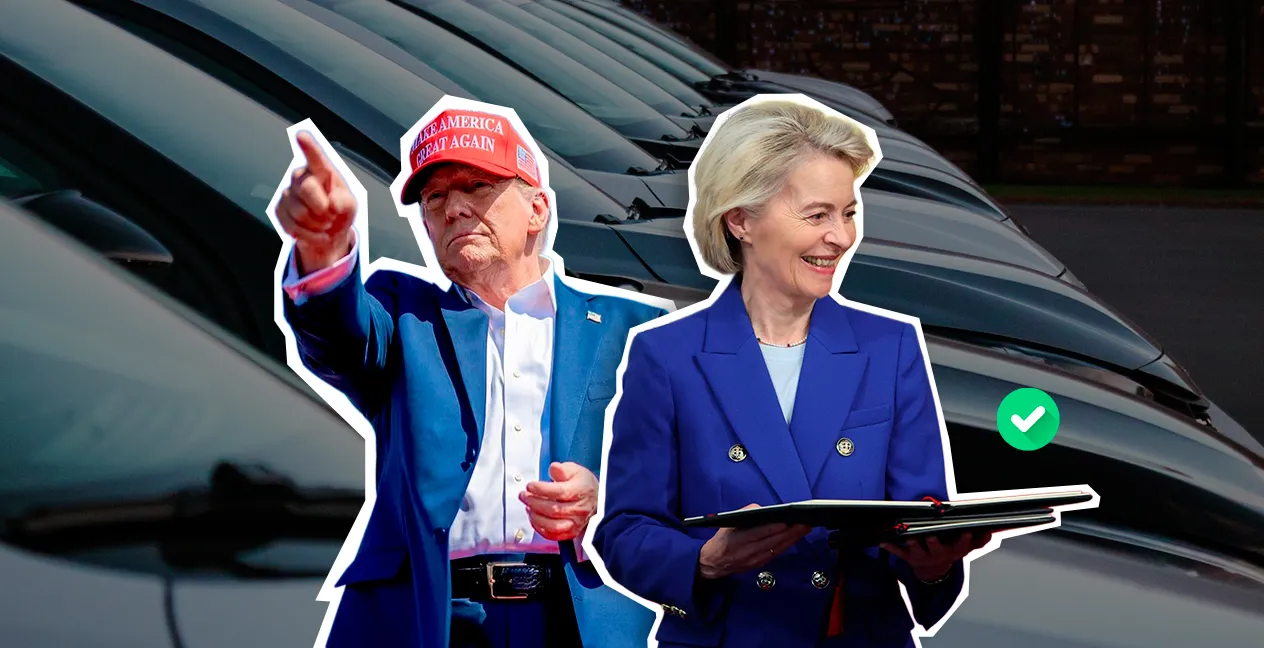
Created by Lucas Luís at Monday, 28 July 2025
Tariffs between Europe and the US: what will change in the automotive sector?
The recent trade agreement between the European Union and the United States, signed on July 27, 2025, brought relief but not a complete resolution to the tariff tensions that were threatening the automotive sector. The automotive tariff, previously set at 27.5%, was reduced to 15%, avoiding a protectionist escalation but still maintaining significant costs for European manufacturers.
This measure comes in an already challenging context for the automotive industry, which is under pressure from electrification, digitalization, and the ecological transition. The imposition of this base tariff directly affects European brands exporting to the U.S., such as Volkswagen, BMW, Mercedes-Benz, and Audi, with estimated annual losses in the billions of euros. The stock prices of these brands dropped between 1% and 3% immediately after the agreement was announced, reflecting the market’s perception that this was an insufficient compromise.
For companies without manufacturing facilities in the U.S., such as Audi, competitiveness is especially affected. On the other hand, brands with local production can partially offset the tariff impact by leveraging their installed capacity on U.S. soil. Even so, analysts predict operational margins could decline by 10% to 15% compared to 2024.
Nevertheless, the agreement does offer a significant benefit: stability. By reducing uncertainty around export costs and transatlantic logistics, it allows European manufacturers, distributors, and retailers to plan more accurately in terms of orders, inventory strategies, and pricing structures.
How do these tariffs affect Portugal?
In Portugal’s case, while we are not a large-scale exporter of automobiles, the impact is felt indirectly. Most vehicles sold in Portugal are imported, and many of them rely on transatlantic technologies or components. With tariffs still relatively high, production costs remain elevated, which could lead to higher prices for end consumers, particularly for premium, electric, or plug-in hybrid models.
For companies like Benecar, this new scenario enables more precise commercial planning, better inventory preparation, and a clearer assessment of model availability based on a more predictable reality. However, pricing pressures remain, and Portuguese consumers may feel this impact, especially in vehicles with greater technological integration.
In the end, this agreement represents a partial solution: it prevents further escalation but does not eliminate the obstacles. The automotive sector continues to navigate a complex environment, where political decisions directly influence prices, innovation, and competitiveness.






